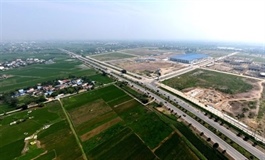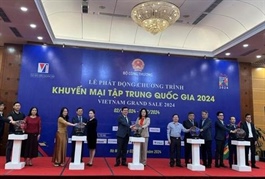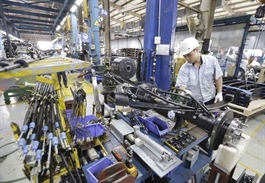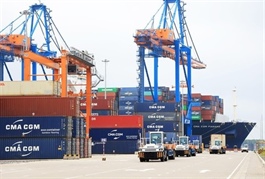Hanoi Farmers Association drives change by innovation and collaboration
Hanoi Farmers Association drives change by innovation and collaboration
The association will act as a bridge between farmers and management agencies to address policy and facilitate funding and brand building.
Pham Hai Hoa, Chairwoman of the Hanoi Farmers' Association, told Hanoimoi Newspaper about the organization's efforts to improve its members' capacity after the implementation of Resolution 46-NQ/TW on December 20, 2023.
This resolution, issued by the Politburo, focuses on enhancing the quality of the Vietnam Farmers’ Association to meet the demands of the new revolutionary era.
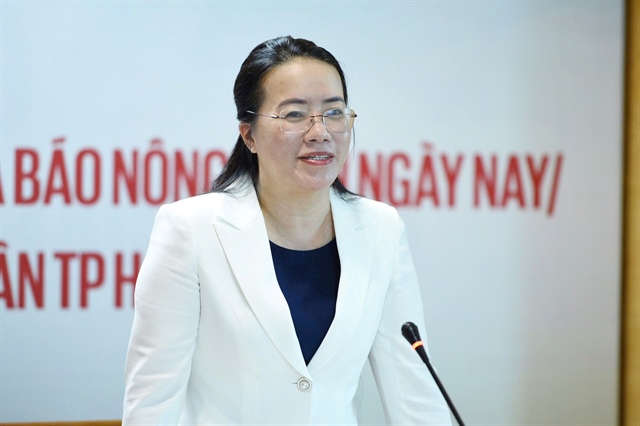
Pham Hai Hoa, Chairwoman of the Hanoi Farmers’ Association. Photo: Hanoimoi Newspaper |
What does Resolution 46 mean to the Vietnamese Farmers' Association, and how has Hanoi carried it out?
Resolution 46 represents a turning point for the Vietnam Farmers’ Association with three core principles: ensuring the Party's leadership over the association and the farmers' movement; emphasizing the central role of farmers in rural economic development, and improving the lives of farmers while safeguarding their legal rights and interests.
After the resolution was passed, the Hanoi Party Committee issued Action Program No. 31-CTr/TU, and the Hanoi City Government issued Plan No. 205/KH-UBND to implement it effectively.
The city’s Farmers’ Association has also executed specific plans aligned with key tasks, such as promoting collective economic development, advancing digital transformation in agriculture, and establishing a Farmers’ Support Fund.
What are the results that Hanoi Farmers' Association has achieved after one year of implementation?
One of the achievements is the "Skilled Farmers: Business Success and Sustainable Poverty Reduction" movement, which attracted more than 526,000 members. Of these, more than 326,00 households met the standards for skilled production and business.
To facilitate experience sharing in production, the association has maintained 206 clubs for skilled farmers at the city and district level, especially in Quoc Oai, Ba Vi, Ung Hoa and Thach That districts.
In addition, we organized hundreds of training sessions to help members restructure their crops and livestock. More than 251,000 members received training on key topics such as science, technology, digital transformation, business management and market access.
The association also cooperated with businesses and organizations to ensure stable markets for agricultural products, listing over 1,800 OCOP (One Commune One Product) items and quality products on the e-commerce platform Postmart.vn, involving 54 producers and 67 safe agricultural product outlets.
Over the past year, the association has added more than 19,000 new members, bringing the total membership to nearly 450,000.
We have also helped local authorities to better understand the challenges faced by farmers.
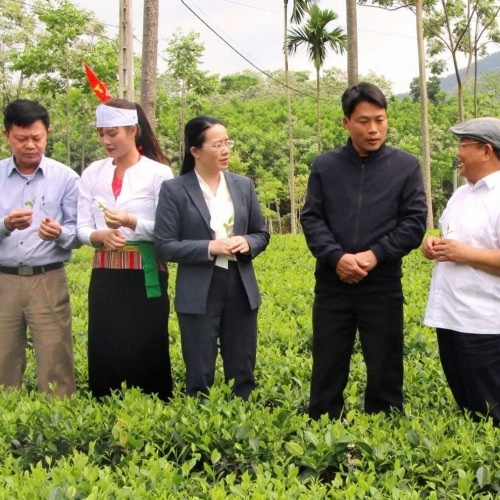
The leaders of the Hanoi Farmers' Association visit a tea cultivation model in Ba Trai Commune, Ba Vi District. |
What are the association's challenges and plans for the future?
Several challenges facing the association include farmers' limited access to support resources and fragmented farming which is difficult for cooperative production models. In addition, the technical infrastructure, particularly irrigation systems and rural transportation, does not meet modern production needs.
Farmers in the capital also face market price volatility, food safety concerns, and environmental pollution in industrial zones and artisan villages. Moreover, the number of young people working in agriculture is declining, with many leaving rural areas for opportunities in other sectors.
The Hanoi Farmers' Association plans to help farmers transition from traditional to modern, sustainable farming practices that incorporate high technology and respond to market demands. The association will improve vocational training, technical workshops and technology transfer, while strengthening product marketing links.
The association also develops agricultural models linked to experiential tourism, leveraging the advantages of suburban areas to add value to agricultural products, create jobs, and increase local incomes.
Thank you for your time.









